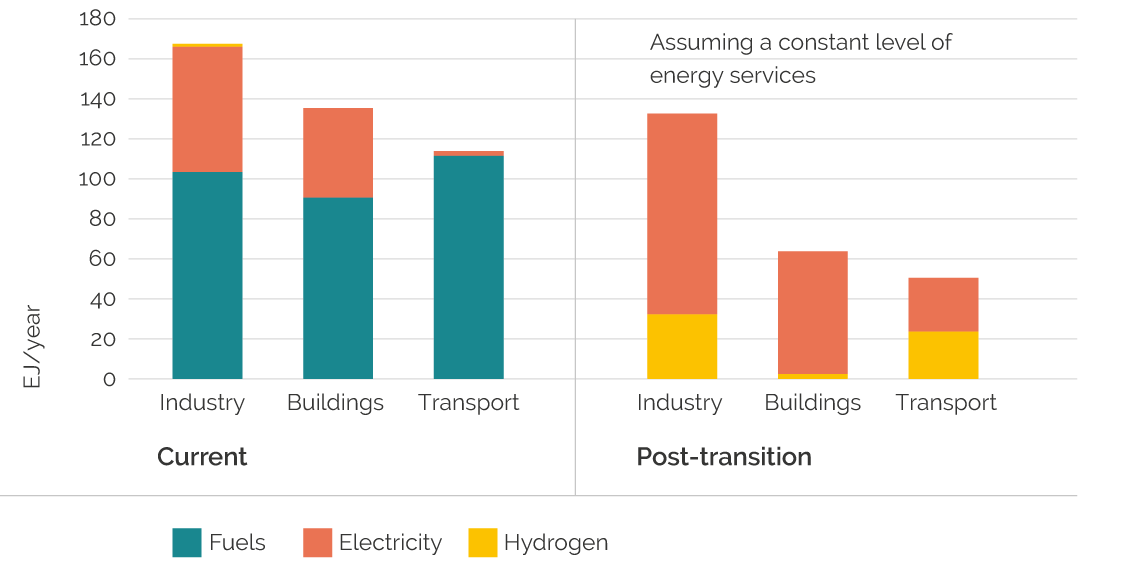Nick Eyre
Abstract
Recent evidence indicates that the key sources of energy for the zero carbon transition will be renewable electricity sources. The most rapidly expanding sources, photovoltaics and wind produce work, as electricity, directly rather than via heat engines. Making the assumption that these will be the dominant sources of energy in a future zero carbon system, the paper makes two new related and innovative contributions to the literature on the energy transition. First, it shows that the energy transition will be more than just a shift away from carbonaceous fuels, and that it is more usefully thought of as including a systemic shift from heat-producing to work-producing energy sources. Secondly, it shows that this enables very large improvements in the conversion efficiency of final energy, through the use of electricity and hydrogen, in particular in heating and transportation. The paper presents a thought experiment showing a reduction in final energy demand of up to 40% is likely from this effect alone. Technical standards and product regulation for end use conversion efficiency and/or service delivery efficiency seem likely to be key policy instruments.

Publication details
Eyre, N. 2021. From using heat to using work: reconceptualising the zero carbon energy transition. Energy Efficiency, 14: 77. doi: 10.1007/s12053-021-09982-9Opens in a new tab
Banner photo credit: Alireza Attari on Unsplash
